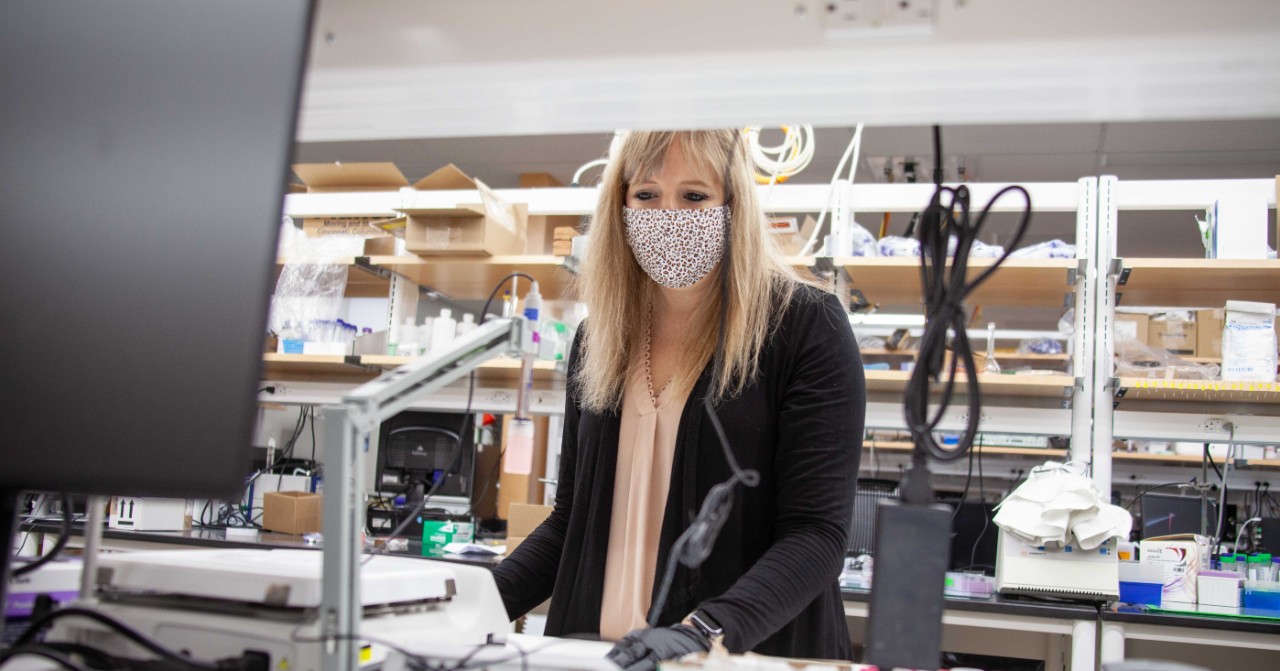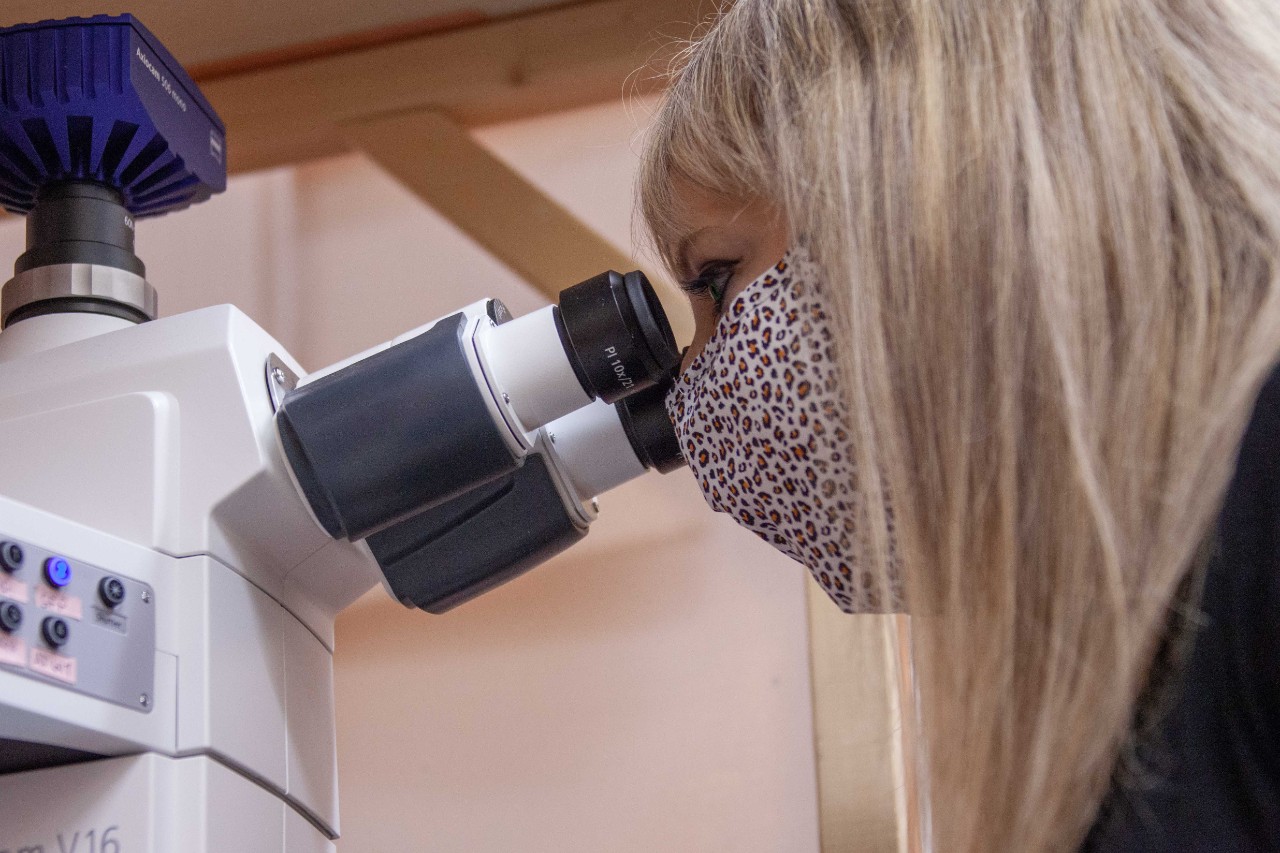
Earth.com: Spent coffee grounds can help detect brain activity
UC research provides another reason to love coffee
Earth.com highlighted chemistry research by the University of Cincinnati that examined how used coffee grounds can improve the sensitivity of electrodes that measure brain activity.
UC assistant professor Ashley Ross in UC's College of Arts and Sciences discovered that coating biosensors with coffee grounds improved their sensitivity.

Ashley Ross
“I saw papers about using spent grounds to produce porous carbon for energy storage, and I thought maybe we could use this conductive material in our neurochemistry detection work,” Ross told Earth.com. “And I also thought this would be a good excuse to buy lots of coffee for the lab!”
Microelectrodes are typically made from carbon fiber. Ross said using old coffee grounds could be an effective but green alternative.
For the study, Ross and her chemistry students made porous carbon from coffee grounds that they used to coat electrodes. They found that the coffee-coated electrodes were more sensitive than bare carbon fibers in detecting the neurotransmitter dopamine, allowing researchers to carry out faster measurements.
Ross will present her study's findings at the spring meeting of the American Chemical Society, which features 12,000 presentations on a variety of science topics.
Featured image at top: UC researchers found that coffee grounds were effective at boosting the sensitivity of electrodes to study neurochemistry. Photo/Nathan Dumlao/Unsplash

UC College of Arts and Sciences assistant professor Ashley Ross studies bioanalytical chemistry. Photo/Ravenna Rutledge/UC Creative + Brand
More UC chemistry in the news

Ashley Ross and her students discovered that coffee grounds can boost the sensitivity of electrodes to study neurotransmitters. Photo/Ravenna Rutledge/UC Creative + Brand
- Daily Mail (UK): Scientists use coffee grounds to study brain
- Roast Magazine: Spent coffee grounds may someday be used to track brain activity
- Medical Life Sciences News: Waste coffee grounds may help detect minute levels of neurotransmitters
- American Chemical Society: Waste coffee grounds could someday help detect brain waves
Related Stories
UC’s spring Visiting Writers Series promises robust, diverse...
December 20, 2024
Lovers of literature, poetry and the written word can look forward to a rich series of visiting writer presentations, offered through UC’s College of Arts and Sciences department of English, coming this spring.
Should voters have more say in Ohio's Legislature?
December 19, 2024
UC Professor David Niven talks to WVXU about gerrymandering in Ohio.
What happens when you give co-op students 90 minutes to make a...
December 19, 2024
UC DAAP students on co-op at the Rockwell Group, an architecture firm in Manhattan, are featured in a Wall Street Journal article about the firm's gingerbread house competition. Check out their gingerbread replica of UC's Crosley Tower.
